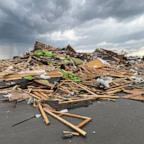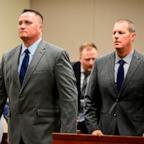Missing Oil in Iraq Undercuts Progress
Revenue needed to rebuild Iraq's economy are lost -- perhaps to corruption.
May 12, 2007— -- An estimated 100,000 to 300,000 barrels of Iraq's daily oil production is unaccounted for, according to a draft report by the federal Government Accountability Office due out this week, ABC News has learned.
At an average price of $50 a barrel, that amounts to between $5 million and $15 million lost every day in oil revenues, which currently fund at least 85 percent of the Iraqi government.
"Since a lot of the country depends on government subsidized gasoline, food rations, without this money, it means there isn't enough for the government to spend on the people," said Pratap Chatterjee, managing editor of CorpWatch and author of "Iraq Inc."
"It is a very critical part of the Iraqi economy," he said.
It's impossible to know precisely how much oil goes missing. After four years of war and $38 billion in aid, Iraq still does not have accurate meters to measure how much is being exported. Therefore, the GAO compared Iraq's official oil production figures with exports and domestic consumption figures.
"When you look at that, there's a discrepancy of a couple of hundred thousand barrels of oil a day," Chatterjee said.
Some Iraqi officials are downplaying the situation, saying that not all the oil is going missing, but that over enthusiastic oil officials are inflating production figures to show reconstruction progress in Iraq.
There could be a degree of truth to that, according to the U.S. Energy Information Administration. The agency does not rely on official Iraqi government figures on oil production because it finds them unreliable, said Erik Kreil, an oil expert with the agency.
Yet analysts insist corruption -- in Kirkuk in the north and Shiite-dominated Basra in the south -- is at least partly to blame, and that in some cases government officials are involved.
"It's a combination of Shiite political parties, people in Shiite government, people who are criminals, people who are contractors," said Anthony Cordesman, an ABC News consultant and military analyst at the Center for Strategic and International Studies in Washington, D.C. "It is a very broad-based network of corruption."




